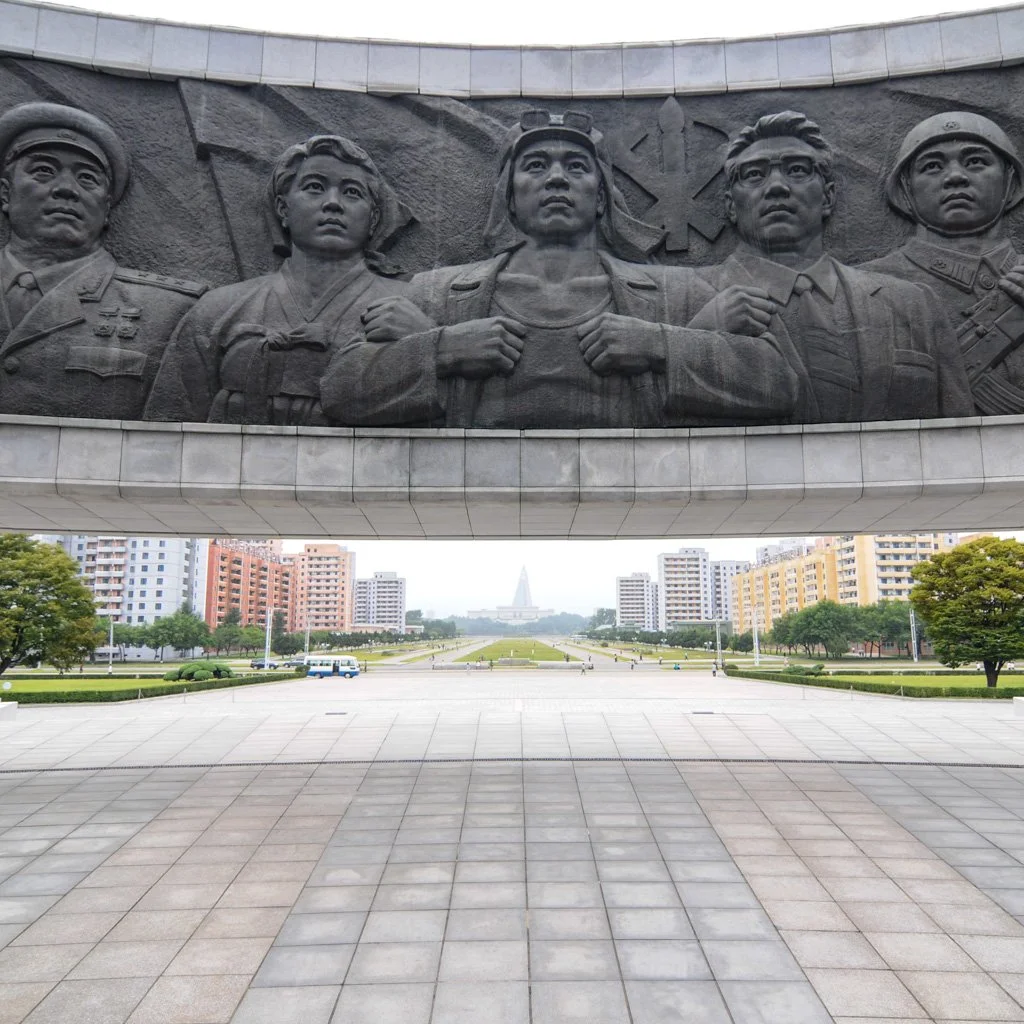Have you wondered what meats you can get in cans in the DPRK?
That Jacket
Upon a recent foray into the wonders of Pyongyang's retail world, one of our workshop leaders made a purchase that has worked out well. In her own description: Daesong delivers a stylish autumn number with this charming burnt-orange jacket. A quality Lonsdale lining and a nifty, adjustable hood will keep you dry throughout the rainy season. Classic beige cuffs and deep, practical pockets make it a timeless piece from this "old and well-respected brand", as described by one North Korean.
To the world? To the Shijang!
A Few Years Ago, Pyongyang Started Talking about light industry and producing more consumer products. Now, we're seeing them. Somewhat surprisingly, the very first major event held in Pyongyang post-Kim Jong Il was a "Light Industry First" event, extolling the need to improve people's quality of life. This took place just two days after Kim's funeral, red flags leaping out from the snowy background.
Urban Development in North Korea - A Rosy Future?
Earlier this month, we conducted our first-ever architectural and urban design workshop in the DPRK, in partnership with the UK’s Architectural Association School of Architecture (AA). It was an intense 10-day event focused on developing proposals for a possible regeneration of a 3km long street in Pyongyang.
Bangkok
For various reasons - a visa run, a meeting, a vacation - two CE staff and one of our fantastic summer interns find themselves in Bangkok this week. This is a city that has thrown itself open to the world, for good and for bad. A city that usually sparkles with energy, that offers so much to so many is muted. Things proceed as usual - Thailand seems very good at getting on with things during times of political instability or violence.
Time, you ain't no friend of mine
By now, most of you will have read that from next week, Pyongyang Standard Time will move 30 minutes earlier. Why? And does this change anything? To the latter question, in terms of trade and travel, the answer is “no”. It will be awkward to remember, sure, but there is little practical effect. Traders and business people will just set their watches back 30 minutes when going to China instead of one hour.
2014-2015 - Economic Growth in North Korea?
We just got around to reading the new CRS report on North Korea, which South Korean press picked up on last week, with dry headlines like "The marketplace economy in North Korea". Dry, but also misleading: we were somewhat surprised when we got around to reading the report that there was barely anything about the DPRK economy - its more of a US perspective on a range of North Korea's diplomatic relations and how they relate to their domestic issues.
A triple whammy
Last week, Andray wrote an opinion piece in Reuters that outlined why the stock market crash in China was the latest in a string of strains on North Korea's economy.
The first was the DPRK's ebola policy, which for nearly five months acted as an effective travel ban. This had clear effects on trade and tourism, as well as counteracted efforts by some agencies to improve perceptions of North Korea as an increasingly hospitable tourism and investment destination.
More Experiments with Land Use in DPRK SEZs
Microfinance in the DPRK - Observations by a Choson Exchange Volunteer
Recently, CE conducted a 2-day workshop with a dual purpose: firstly, to provide an introductory training program on micro and SME finance to 40-odd delegates; secondly, to assess the feasibility of establishing such a lending facility with the express purpose of supporting and growing small enterprises in the DPRK.









